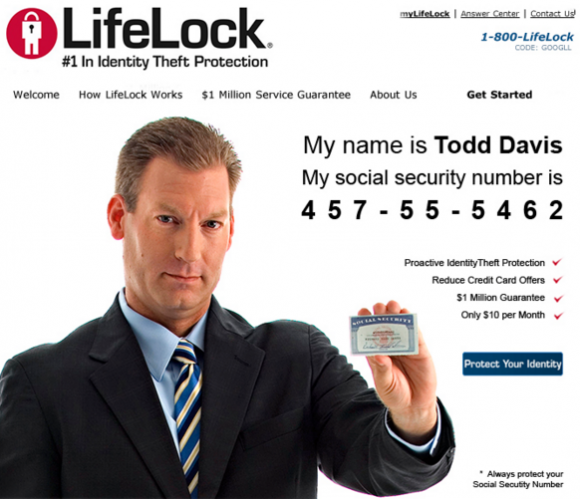The U.S. Federal Trade Commission this past week announced it reached settlements with software giant Oracle and identity protection firm LifeLock over separate charges of allegedly deceiving users and customers about security. LifeLock agreed to pay $100 million for violating a 2010 promise to cease deceptive advertising practices. Oracle’s legal troubles with the FTC stem from its failure to fully remove older, less secure versions of Java when consumers installed the latest Java software.
 The FTC sued Oracle over years of failing to remove older, more vulnerable versions of Java SE when consumers updated their systems to the newest Java software. Java is installed on more than 850 million computers, but only recently (in Aug. 2014) did the company change its updater software to reliably remove older versions of Java during the installation process.
The FTC sued Oracle over years of failing to remove older, more vulnerable versions of Java SE when consumers updated their systems to the newest Java software. Java is installed on more than 850 million computers, but only recently (in Aug. 2014) did the company change its updater software to reliably remove older versions of Java during the installation process.
According to the FTC’s complaint, since acquiring Java in 2010, Oracle was aware of significant security issues affecting older versions of Java SE. The FTC charges that Oracle was aware of the insufficiency of its update process.
“Internal documents stated that the ‘Java update mechanism is not aggressive enough or simply not working,’ and that a large number of hacking incidents were targeting prior versions of Java SE’s software still installed on consumers’ computers,” the FTC said “The security issues allowed hackers’ to craft malware that could allow access to consumers’ usernames and passwords for financial accounts, and allow hackers to acquire other sensitive personal information through phishing attacks.”
Few sites require Java to display content anymore, and most regular users can likely do without the program given the incessant security holes introduced by the program and its record of being abused by malicious software to infect millions of systems. See this post for a more detailed breakdown of why I’ve so often encouraged readers to junk Java, and advice for users who absolutely still need to have Java installed. If you’re not sure whether you have Java installed, check out this page that Oracle has put up to help users detect and remove installations of Java.
LIFELOCK
The FTC’s $100 million settlement with LifeLock represents a record for monetary awards obtained by the agency It stems from alleged violations of a previous deceptive advertising settlement the company reached with the FTC back in 2010.

An ad for LifeLock services.
According to the FTC, LifeLock failed to establish and maintain a comprehensive information security program to protect users’ sensitive personal information — including their social security, credit card and bank account numbers. The FTC also alleged LifeLock falsely advertised that it protected consumers’ sensitive data with the same high-level safeguards used by financial institutions, and that it would send alerts “as soon as” it received any indication that a consumer may be a victim of identity theft.
The court documents related to the latest LifeLock settlement are still sealed, so it’s unclear how exactly LifeLock allegedly failed to protect customers’ sensitive personal data. Interestingly, the lone dissenter in the LifeLock case was FTC Commissioner Maureen K. Ohlhausen, who said she disagreed with the ruling because the commission hadn’t produced evidence that LifeLock somehow failed to secure its customer data, and noted that the company has complied with payment card industry security standards for accepting and handling credit card data.
For its part, LifeLock says in a statement that “there is no evidence that LifeLock has ever had any of its customers data stolen, and the FTC did not allege otherwise.”
This October 2015 story from About.com includes interesting perspective from Virginia Attorney Ken Cuccinelli, whose investigation into LifeLock’s business practices culminated in a class-action lawsuit pitting the FTC and 34 other state attorneys general against the company. According to that interview, Cuccinelli’s beef with LifeLock seems to have centered around allegations of false advertising about the level and quality of LifeLock’s identity protection service, as opposed to any specific data security issues at LifeLock.
“The problem, according to Cuccinelli, was not so much that LifeLock offered a flawed service, but that they were misrepresenting the level of security that they in fact provided,” wrote William Deutsch. “For years, LifeLock had been claiming to be an airtight guarantee against all forms of identity theft. LifeLock’s service is most effective against new account fraud, which is why members can expect an alert when someone tries to open up a new account in their name. But according to the Federal Trade Commission, the service wasn’t as effective in securing customers against the abuse of existing accounts, nor did it offer much protection against medical and employment related fraud.”
I have consistently urged readers to understand the limitations of credit monitoring services, which countless companies offer consumers each year in response to data breaches that expose customer personal and payment data. As I’ve noted time and again, credit monitoring services are unlikely to block thieves from opening new lines of credit in your name; the most you can hope for is that these services will alert you when the thieves succeed in getting new credit using your good name.
Credit monitoring services are useful for ID theft victims who are seeking help in removing fraudulent inquiries from their credit report. But if you want true protection against new account fraud committed in your name, place a security freeze on your credit file with the major credit bureaus. This article explains more about what’s involved in a security freeze and how to protect you and your family.
Source: Krebs
